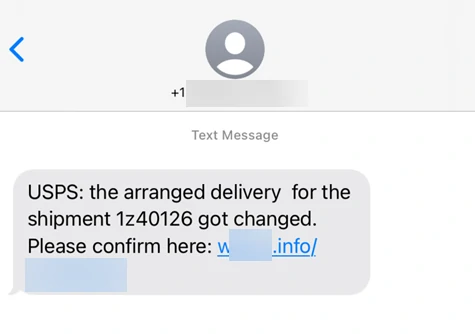The main shopping day of the year, Black Friday, is just around the corner, and the popular marketplaces already have sales. Scammers worldwide can’t miss this event and are looking to make a quick profit by creating convincing scams. In this article, we’ll look at some of the most common Black Friday scams and how to avoid falling victim to them.
How does this scam work?
Year by year, crooks are becoming increasingly sophisticated, resorting to tactics to dupe individuals. They trick victims into divulging sensitive information or financial details or engaging in transactions involving non-existent products. The culprits establish counterfeit websites or online stores designed to resemble authentic businesses. They also utilize stolen logos, symbolism, product descriptions, and images of legitimate shops. It gives victims the belief that they are interacting with a legitimate enterprise.

Average Facebook Scam ad
Scammers frequently use social media advertisements and spam emails to draw individuals to their fraudulent web pages. The former often promises implausible discounts to those who enter the promotion code provided in the advertisement. At the same time, the latter is more personalized in nature. In the case of email spam messages, scammers may copy the style of legitimate shops. Thus, they bolster the impression of authenticity and legitimacy further.
Common Black Friday Scams
Buyers often ignore the elementary rules of online shopping safety in the hustle and bustle and the pursuit of discounts. Now, we will refresh your memory and list the red flags you should pay attention to:
Fake Websites
Pursuing lucrative Black Friday deals, one may stumble upon a seemingly too favorable offer. However, it is imperative to exercise caution before making any purchases on such sites. Cyber tricksters have gone to great lengths to craft fake websites that resemble authentic ones, with logos and layouts that exude an air of legitimacy.

Gift card giveaway scam
They also offer incredible discounts that may appear too good to be true. By purchasing on a fake site, one risks receiving substandard products and losing personal information such as account details. We have identified phishing sites with standard registered information and similar traits, making it challenging to differentiate them from genuine sites.
Payment Scams
When working with victims through legitimate pages, scammers often try to evade any possible refunds and responsibilities by persuading you to pay outside an official website payment system. They may offer discounts or incentives if you pay via third-party services such as PayPal, Venmo, CashApp, or cryptocurrency. However, these actions aim not to give you more favorable terms. On the contrary, the real goal is to steer you from the platform to a third-party payment service.
Thus, paying via such methods leaves you at risk of staying without all. The buyer protection mechanism offered by official payment systems does not cover deals in which payments are made through third-party systems. Although you may report such fraudulent activities to the support team, the perpetrator may continue to scam others before their account is deleted. Therefore, it is essential to remain vigilant and only use official payment systems when conducting transactions online.
Delivery and Shipping Scams
During Black Friday Scams, crooks use dirty tricks in delivery and shipping. One of the most prevalent tactics scammers use is fake delivery notifications that appear to be from reputable delivery services. These counterfeit notifications are often sent via text messages and include a link to a fraudulent website. This site purports to resolve a shipping issue. However, the website is designed to deceive users into divulging personal information. It also makes fraudulent payments or pays fake fees or taxes.

Fake notification from Delivery Service
Another kind of scam is the use of AgentTesla malware. Scammers send emails with subjects such as “shipping documents.gz” and include malicious attachments that can wreak havoc on users’ systems. According to a recent study conducted in October 2023, researchers found a 13% increase in fraudulent files related to orders and delivery compared to the previous year. This suggests that cyber adversaries are becoming more sophisticated in their approach.
How to avoid Black Friday scams?
To make sure your shopping experience is both safe and enjoyable, we recommend taking a few precautions.
- Analyze your incoming messages. You should check your emails thoroughly to ensure accuracy by identifying grammatical errors, unclear terms, or signs of machine translation. Crooks often use domains with minor spelling errors or appear legitimate, so it’s essential to remain vigilant.
- Keep a skepticism. Suppose someone claiming to represent a brand raises suspicion. In that case, verifying their identity by calling the company directly is always a good idea. Be sure to sift through the sender’s email address, as reputable brands usually use official domains instead of suspicious webmail addresses.
- Pay attention to links. Look for a secure connection by ensuring the website address begins with “https://”. Also, be wary of sites with misspelled words or unusual domain names. Please avoid clicking on links in unsolicited emails and pop-up ads. Instead, type the retailer’s official URL directly into your browser.
- Too good to be true. Greed is common, and scammers take advantage of it. It’s important never to trust offers that seem too good. More often than not, these offers are scams and aim to make you pay for a non-existent item or one of subpar quality.
- Avoid social engineering. When assessing a message for scam potential, look for a sense of urgency. In addition, pay attention to depersonalized appeals (using “Dear user” instead of your username). Official stores know your name and appeal by name. Scammers use generic text.
You should also be careful when opening unexpected emails. It’s suspicious to receive discounts for items you’ve never been interested in from sites you’ve never been to. Verify information through legitimate websites and find more information regarding the offer from that particular site. It’s essential to be aware of URL phishing attacks that trick you into clicking on malicious links. To protect yourself, hover over links in emails to verify their destination. Avoid clicking on links. Instead, go directly to the company’s website and navigate to the relevant page.
